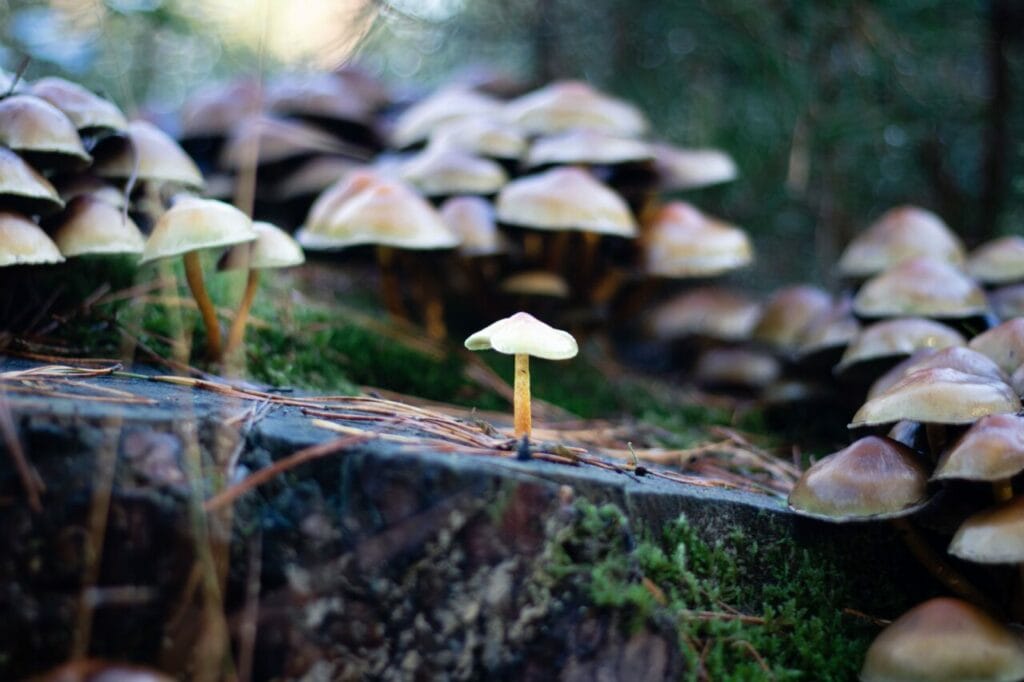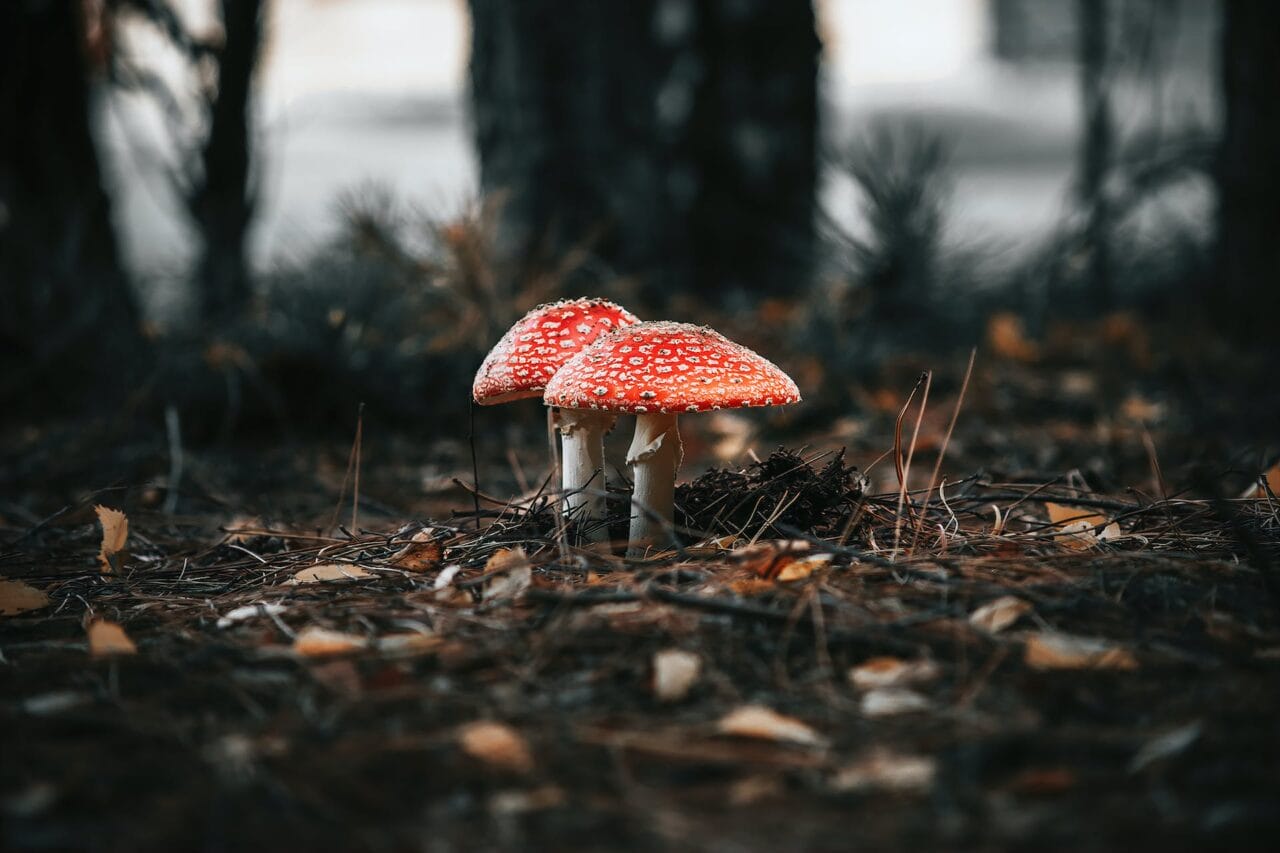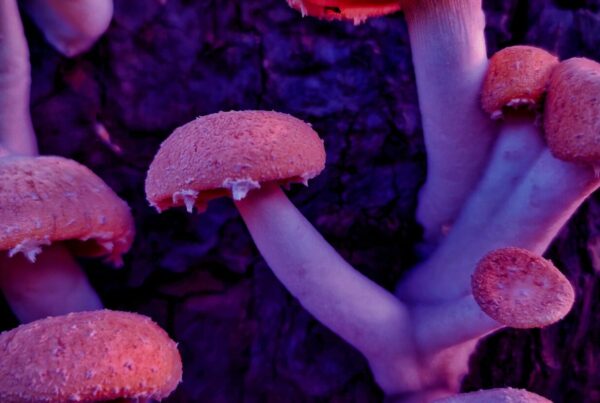Interest in psilocybin, a psychoactive compound, is growing due to its potential benefits for mental health disorders such as anxiety and addiction. However, procuring psilocybin can be challenging. The number of labs and shroom delivery services supplying magic mushrooms is limited, and the costs can be high.
This piece discusses the evolution of psilocybin, its present status, and its potential benefits for those seeking treatment.
[toc]Highlights:
- Mushroom cultivation requires considerable effort and careful monitoring to avoid contamination during the inoculation stage.
- Psilocybin creates a psychedelic experience by interacting with different brain regions, primarily the serotonin receptors.
- Psilocybin causes a minor increase in heart rate, which normalizes quickly following consumption, and usually has no other negative effects.

Providing Only Top-Quality Magic Mushrooms
Magic mushrooms naturally thrive in various environments such as manure-rich paddocks, leafy temperate forests, grasslands, and woods. People have historically traversed these areas to collect these fungi for medical purposes or for use in spiritual and religious rituals.
Conventional Method
Today, the traditional practice of mushroom foraging in natural habitats has declined. This shift may be attributed to the emergence of other methods such as cultivation or the availability of magic mushrooms for purchase online.
Wild mushrooms are typically less potent than lab-grown ones, which are carefully cultivated under controlled circumstances. Moreover, foraging in the wild carries the risk of accidentally picking a poisonous species.
Contemporary Method
The procedure for mushroom production starts by nurturing spores to maturity, a complex process that requires a significant amount of precision and effort.
Meticulous time and attention to detail are paramount to prevent any potential contamination during the inoculation phase. Once the mushrooms are ready for harvesting, they are typically dried by labs or cultivators to improve their shelf life. Fresh mushrooms have a lifespan of only a few days, while dried variants can be stored for several months or even up to a year.
Manufacturers transform dried mushrooms into various forms including microdose capsules, edibles, tinctures, and beverages, which are then distributed throughout Canada through magic mushroom delivery services.
Utilizing the Advantages of Psilocybe Cubensis or Magic Mushrooms
Researchers conduct clinical trials on mushrooms mainly to study their effects on mental health and mood disorders, a subject of numerous anecdotal reports. These effects are being studied in various ways, from microdosing with capsules to experiencing a mushroom trip with dried mushrooms or chocolate edibles.
Upon ingestion, psilocybin is metabolized into psilocin. This compound acts similarly to serotonin, a neurotransmitter that significantly influences mood regulation. It interacts with several areas of the brain, particularly the serotonin receptors, to induce a psychedelic journey.
Those who participate in psilocybin therapy often report substantial changes that extend beyond heightened senses and visual modifications. These experiences can cause a marked shift in self-perception and a deep alteration in personal outlook, often characterized by profound revelations.
Depression and Suicidal Propensities
In a study featured in the Journal of Psychopharmacology, the effects of a psychedelic experience on individuals battling depression and suicidal thoughts were explored. Most participants viewed their encounter with psilocybin as profoundly meaningful and stressed its potential impact on their lives. Such high levels of satisfaction could improve the effectiveness of therapy, considering the significance of patient engagement in mental health interventions.
Safety Profile
Aside from studying the effects of psilocybin on depression and anxiety, researchers also examine the safety aspect of this substance. According to a study in JAMA Psychiatry, participants who consumed psilocybin showed a minor increase in heart rate and blood pressure two hours post-ingestion. However, further analysis with Holter monitoring revealed no significant increase in the risk of cardiac arrhythmias in the psilocybin group compared to the niacin group. The study also discovered
No significant psychological distress was found among users.





